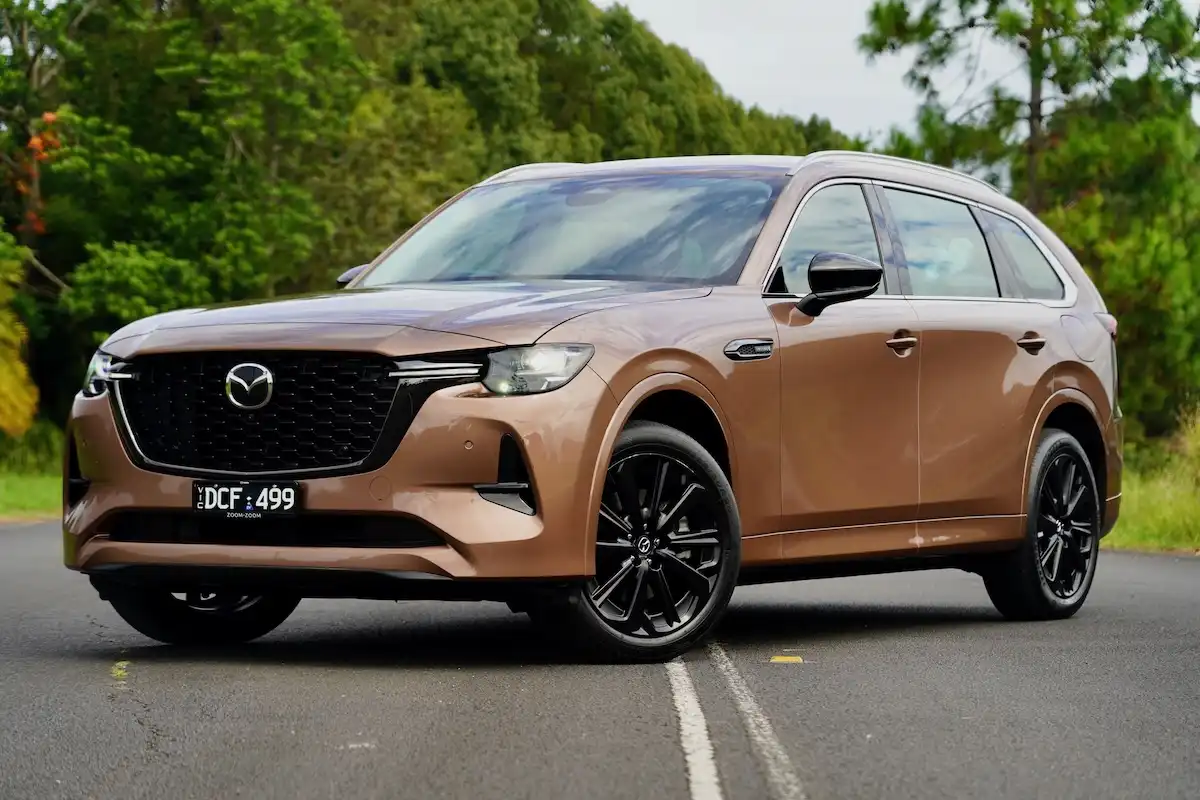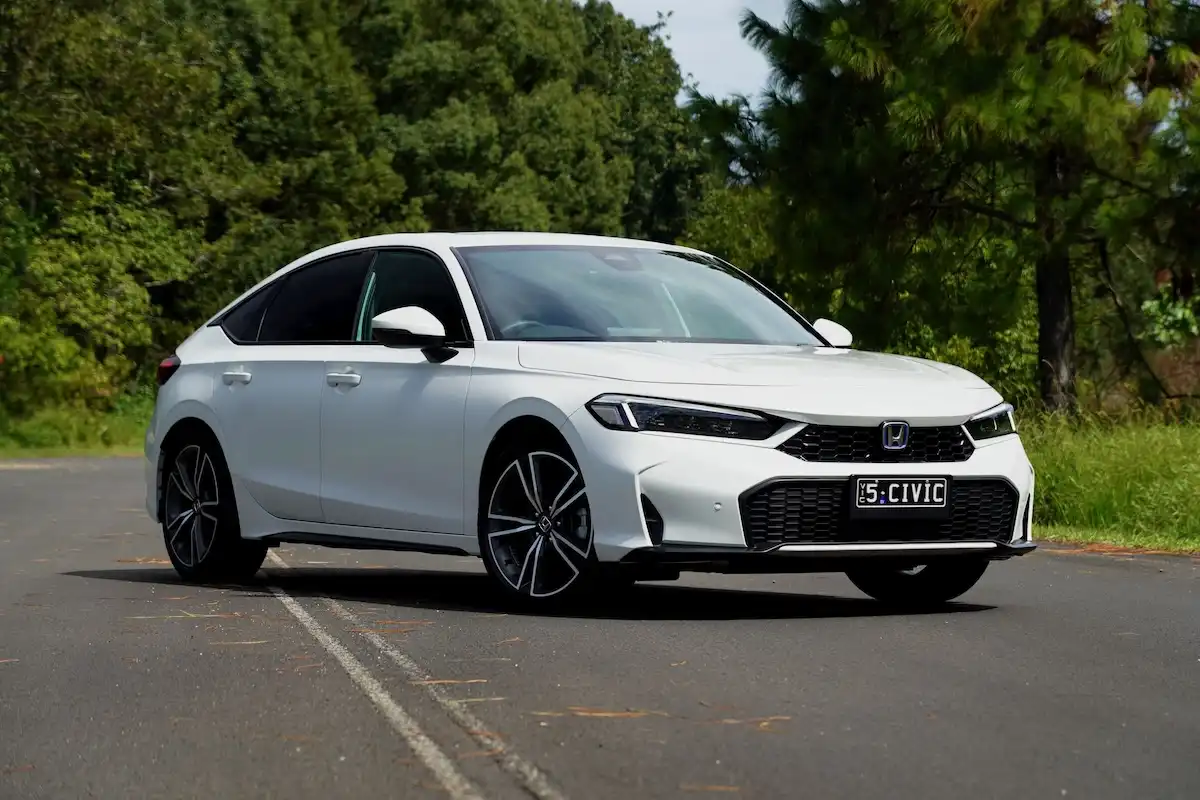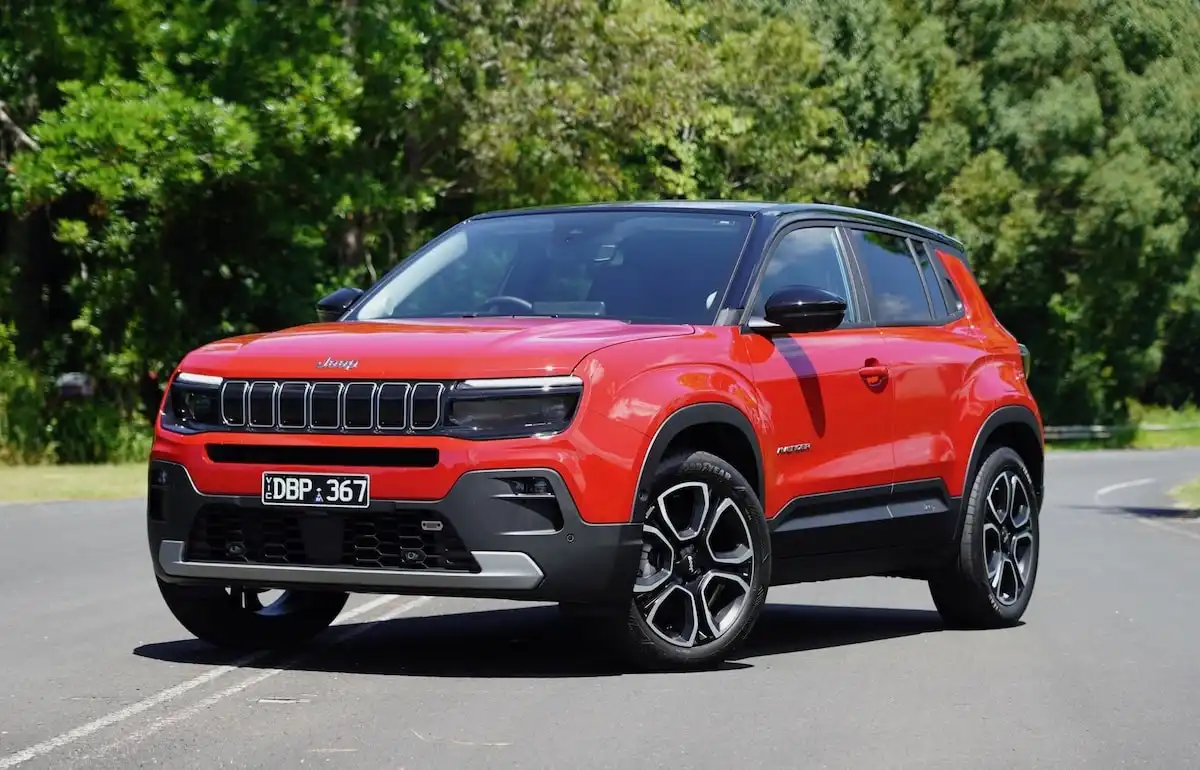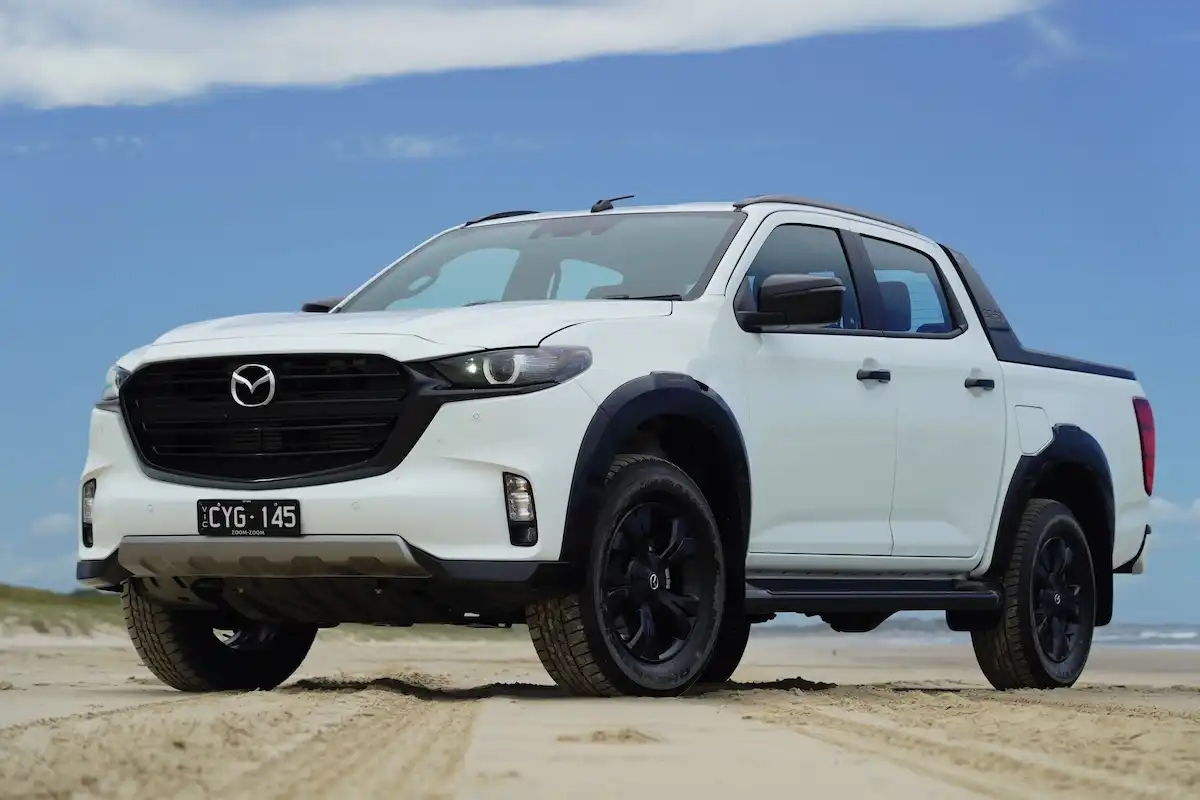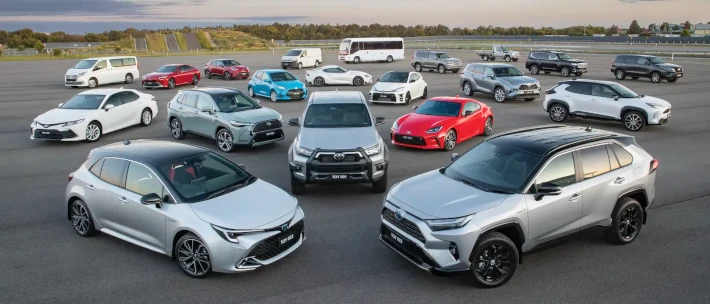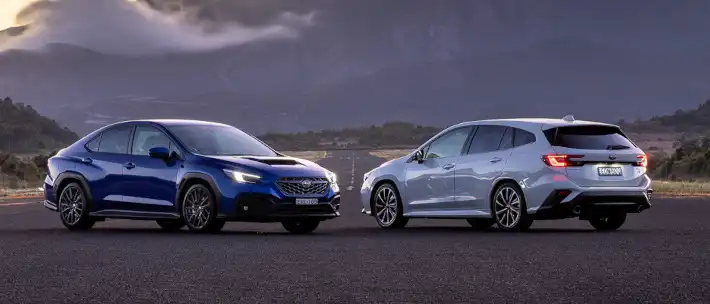Electric vehicles offer a world of benefits, though there are some real-world considerations like charging times to consider if you want the easiest ownership experience.
Critics often say you’ll be sitting around at a charging station for hours just to have enough juice to get home, but these days, battery and fast-charging technology have brought us to a much more competitive point for EVs as a daily driver.
Let’s take a close-up look at how electric vehicle charging works, discover what influences your charging speeds when you’re at a public charger and list out the fastest-charging EVs on sale in Australia.
AC & DC Charging Explained
Without getting too bogged down in the technicalities, let’s look at the difference between AC and DC charging in the context of electric vehicles.
-
Alternating Current (AC Power) is the electricity supply that our homes and businesses run on, where the electrons change direction as they move, oscillating in positive and negative cycles.
-
Electric vehicles can charge using AC power from a home outlet or specialised wall box that increases your AC charging speed potential.
-
Direct Current (DC Power) has electrons that flow directly, without any oscillation.
-
It’s important to note that an electric vehicle’s battery pack is only capable of storing DC power.
That means that DC charging is by far the fastest and most efficient means of charging an electric vehicle’s battery because it doesn’t need to convert any AC electricity into DC to be stored in the battery itself.
Get in touch with one of our Car Buying Specialists today.
Request a quoteWhat Impacts Charging Speeds of an Electric Vehicle?
Several things impact the amount of AC and DC electricity transferred to the battery of your electric vehicle - some of the major influences include:
-
Type and Output of Charging Infrastructure (Level 1, 2 and 3 chargers)
-
Vehicle’s Maximum Charging Rates
-
Battery State of Charge (SOC)
-
Ambient Temperature
-
Temperature of the Battery Pack
-
Battery Management System & Charging Curve
-
Charging Protocol
-
Grid Power & Voltage

What’s the Difference Between 400V and 800V Architecture?
Manufacturers often throw out terms like the 400-volt and 800-volt architecture of their electric vehicles.
In essence, they’re talking about the voltage that the electric vehicle’s systems run on, or in more simple terms - just how much juice can flow through the ‘pipes’ at one time.
400V systems have underpinned most EVs in the past, with the industry moving toward 800V architecture to increase the efficiency, power and charging speeds of their vehicles, making the latter a superior electrical system.
Different Levels of EV Charging Explained: Levels 1, 2 and 3
It’s easy to get confused by terms like level 1, level 2 and level 3 chargers for your electric vehicle, though thankfully, it’s a relatively easy concept to wrap your head around.
-
Level 1/Mode 2 Chargers allow you to use a standard household outlet which, here in Australia, measures between 220-240V and 10-15 Amps, with AC power fed to the vehicle which is converted to DC power for the battery pack.
-
Level 2/Mode 3 Chargers are more specialised wall boxes that can be optioned with your vehicle, or in some cases, bundled in for free. They utilise 32 Amp 3-phase AC power that offers charging speeds up to 22kW.
-
Level 3/Mode 4 chargers are the fastest way to charge your vehicle, utilising DC power of speeds up to 350kW in vehicles with the latest charging architecture.
Australia’s Fastest-Charging Electric Vehicles Listed
Below you can find a list of the fastest-charging electric vehicles on sale here in Australia, using their DC fast-charging capabilities as a reference point.
Hyundai IONIQ 5
- Battery Size: 80kWh
- DC Fast-Charging Speed: 350kW
- AC Charging Speed: 11kW
- 10-80% Charge Time: 18 minutes
Hyundai IONIQ 6
- Battery Size: 53 - 74kWh
- DC Fast-Charging Speed: 350kW
- AC Charging Speed: 11kW
- 10-80% Charge Time: 18 minutes
Kia EV6
- Battery Size: 74kWh
- DC Fast-Charging Speed: 350kW
- AC Charging Speed: 11kW
- 10-80% Charge Time: 18 minutes
Genesis GV60
- Battery Size: 74kWh
- DC Fast-Charging Speed: 350kW
- AC Charging Speed: 11kW
- 10-80% Charge Time: 18 minutes
Genesis GV70 Electrified
- Battery Size: 74kWh
- DC Fast-Charging Speed: 350kW
- AC Charging Speed: 11kW
- 10-80% Charge Time: 18 minutes
Kia EV9 Air
- Battery Size: 74.1kWh
- DC Fast-Charging Speed: 350kW
- AC Charging Speed: 11kW
- 10-80% Charge Time: 20 minutes
Genesis G80 Electrified
- Battery Size: 82.5kWh
- DC Fast-Charging Speed: 350kW
- AC Charging Speed: 11kW
- 10-80% Charge Time: 22 minutes
Porsche Taycan
- Battery Size: 71 - 83.7kWh
- DC Fast-Charging Speed: 270kW
- AC Charging Speed: 22kW
- 5-80% Charge Time: 23 minutes
Audi E-Tron GT
- Battery Size: 85kWh
- DC Fast-Charging Speed: 270kW
- AC Charging Speed: 11kW
- 5-80% Charge Time: 23 minutes
Tesla Model 3
- Battery Size: 57.5 - 75kWh
- DC Fast-Charging Speed: 175-250kW
- AC Charging Speed: 11kW
- 10-80% Charge Time: 25-30 minutes
Tesla Model Y
- Battery Size: 57.5-75kWh
- DC Fast-Charging Speed: 175-250kW
- AC Charging Speed: 11kW
- 10-80% Charging Time: 25-30 minutes
BYD Seal Premium & Performance
- Battery Size: 82.56kWh
- DC Fast-Charging Speed: 150kW
- AC Charging Speed: 11kW
- 30-80% Charge Time: 26 minutes
Volvo EX30
- Battery Size: 64kWh
- DC Fast-Charging Speed: 153kW
- AC Charging Speed: 11kW
- 5-80% Charge Time: 27 minutes
Volvo XC40 Recharge
- Battery Size: 66-79kWh
- DC Fast-Charging Speed: 130-200kW
- AC Charging Speed: 11kW
- 5-80% Charge Time: 27 minutes
Volvo C40 Recharge
- Battery Size: 85kWh
- DC Fast-Charging Speed: 270kW
- AC Charging Speed: 11kW
- 5-80% Charge Time: 23 minutes
MG MG 4 (Excite and Essence 64)
- Battery Size: 64kWh
- DC Fast-Charging Speed: 140kW
- AC Charging Speed: 7kW
- 5-80% Charge Time: 28 minutes
Audi Q4 E-Tron
- Battery Size: 82kWh
- DC Fast-Charging Speed: 135-175kW
- AC Charging Speed: 11kW
- 10-80% Charge Time: 28 minutes
Polestar 2 (Long Range & Dual-Motor)
- Battery Size: 82kWh
- DC Fast-Charging Speed: 205kW
- AC Charging Speed: 11kW
- 10-80% Charge Time: 28 minutes
BYD Atto 3 (Extended Range)
- Battery Size: 60.4kWh
- DC Fast-Charging Speed: 80kW
- AC Charging Speed: 7.4kW
- 30-80% Charge Time: 29 minutes
BYD Dolphin (Premium)
- Battery Size: 60.4kWh
- DC Fast-Charging Speed: 80kW
- AC Charging Speed: 11kW
- 5-80% Charge Time: 29 minutes
BMW iX1
- Battery Size: 64kWh
- DC Fast-Charging Speed: 130kW
- AC Charging Speed: 11kW
- 5-80% Charge Time: 29 minutes
BMW iX2
- Battery Size: 64.7kWh
- DC Fast-Charging Speed: 130kW
- AC Charging Speed: 11kW
- 10-80% Charge Time: 29 minutes
Renault Megane E-Tech
- Battery Size: 60kWh
- DC Fast-Charging Speed: 130kW
- AC Charging Speed: 22kW
- 5-80% Charge Time: 30 minutes
Peugeot E-2008
- Battery Size: 46.3kWh
- DC Fast-Charging Speed: 100kW
- AC Charging Speed: 7.4kW
- 0-80% Charge Time: 30 minutes
Peugeot E-Partner
- Battery Size: 46.3kWh
- DC Fast-Charging Speed: 100kW
- AC Charging Speed: 7.4kW
- 0-80% Charge Time: 30 minutes
Mercedes-Benz EQA
- Battery Size: 66.5kWh
- DC Fast-Charging Speed: 100kW
- AC Charging Speed: 11kW
- 10-80% Charge Time: 30 minutes
Mercedes-Benz EQB
- Battery Size: 66.5kWh
- DC Fast-Charging Speed: 100kW
- AC Charging Speed: 11kW
- 10-80% Charge Time: 30 minutes
BMW i5
- Battery Size: 81.2kWh
- DC Fast-Charging Speed: 250kW
- AC Charging Speed: 11kW
- 10-80% Charge Time: 30 minutes
Polestar 3
- Battery Size: 107kWh
- DC Fast-Charging Speed: 250kW
- AC Charging Speed: 11kW
- 10-80% Charge Time: 30 minutes
Lexus RZ
- Battery Size: 64kWh
- DC Fast-Charging Speed: 150kW
- AC Charging Speed: 11kW
- 10-80% Charge Time: 30 minutes
BMW iX3
- Battery Size: 80kWh
- DC Fast-Charging Speed: 150kW
- AC Charging Speed: 11kW
- 10-80% Charge Time: 32 minutes
BMW i7
- Battery Size: 106kWh
- DC Fast-Charging Speed: 195kW
- AC Charging Speed: 11kW
- 10-80% Charge Time: 34 minutes
MG ZS EV
- Battery Size: 50.3 - 72kWh
- DC Fast-Charging Speed: 50kW
- AC Charging Speed: 11kW
- 10-80% Charge Time: 54-63 minutes
FAQ: Why Does My EV Slow Down the Charging Rate, Even with a DC Fast Charger?
Batteries charge at their quickest between a 0-80 per cent state of charge and, depending on the vehicle, that last 20 per cent may take as long as the initial 80 per cent charge.
An analogy often used to explain this is if you were to arrive at an empty car park, it would take you just a second or two to find yourself a car space, while the same process might take 5 minutes when the car park is 80 per cent full.
The same thing happens with electrons inside a battery pack, with the first electrons able to sprint to an empty spot, while the last has some difficulty in finding a vacant park.
FAQ: What EV has the Fastest Charging Rate?
Currently, Hyundai’s latest electric vehicle offerings feature the fastest DC charging rates of any new EVs on sale in Australia, with architecture that can support DC fast-charging up to speeds of 350kW that offers a 10-80 per cent charge in as little as 18 minutes.
FAQ: What is the Fastest Charger for EV Cars?
Here in Australia, the fastest public chargers available to the public offer DC charging speeds of up to 350kW, while the majority of mode 4 chargers offer DC fast charging between 150kW to 350kW.
FAQ: Should I Get a 3.6kW or 7kW Charger?
If you’re looking to install a level 2 wall box charger at your home or workplace, we’d recommend opting for the faster 7kW charger that offers nearly double the charging speeds of a 3.6 charger.
Request a Quote
If you’re tossing up your best electric vehicle options, be sure to reach out to one of our car-buying experts who can help find you the best possible price.
Get in touch with one of our Car Buying Specialists today.
Request a quote
